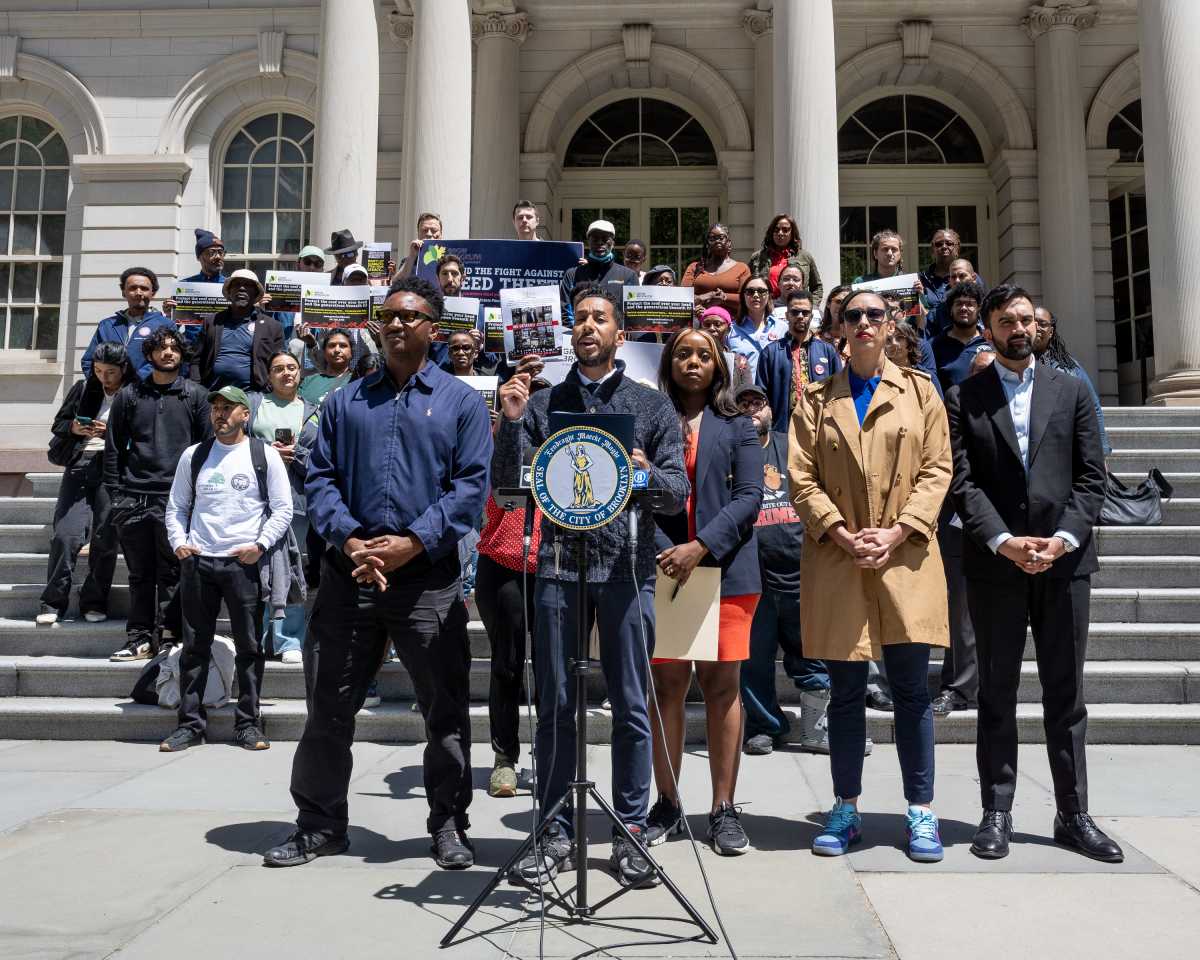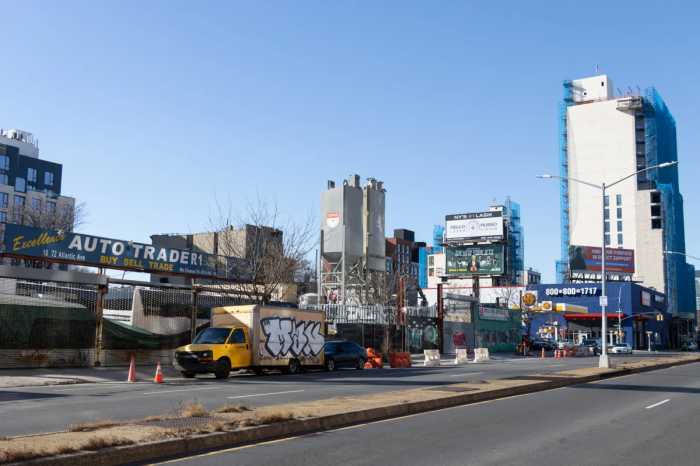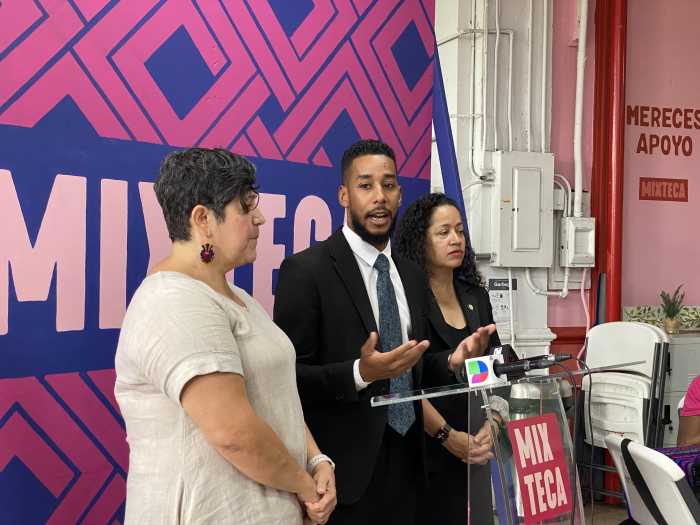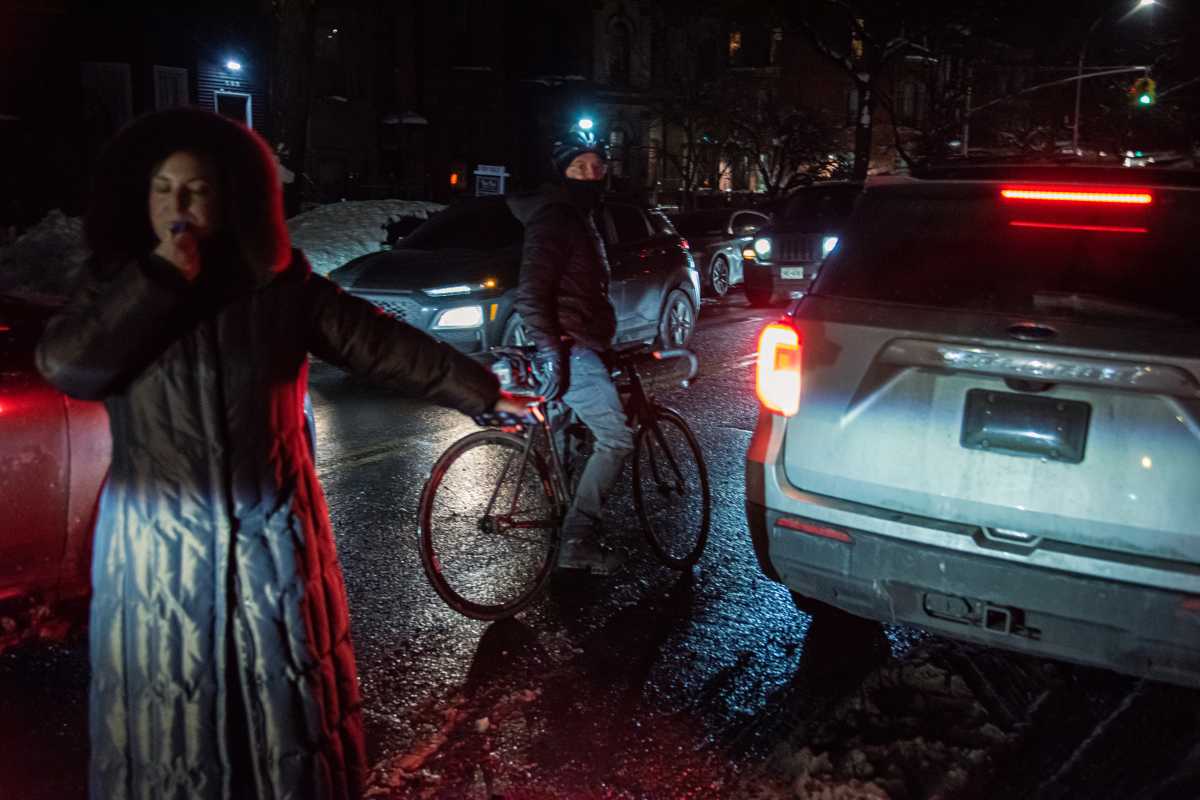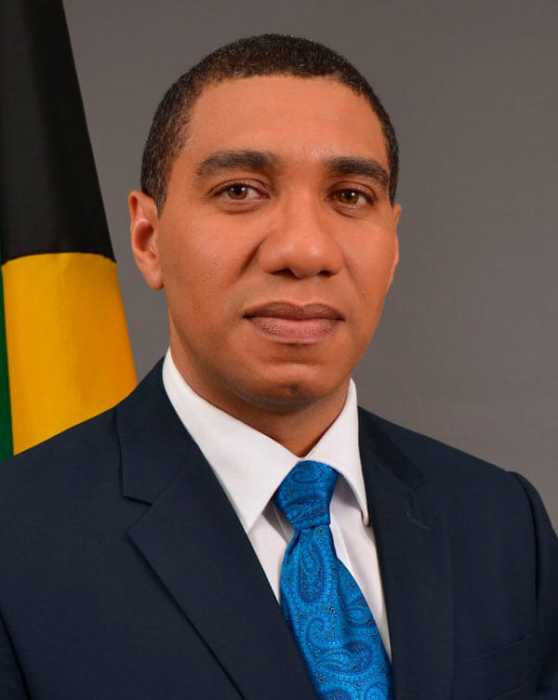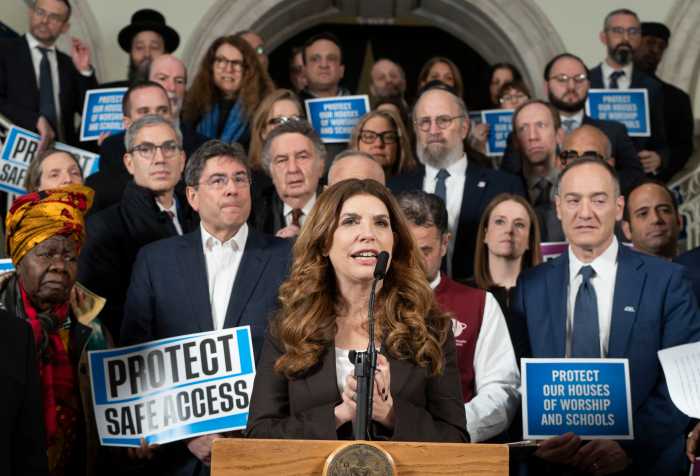Brooklyn lawmakers rallied alongside community members and homeowners on the steps of City Hall on May 20, calling on the City Council to allocate $5 million of next year’s budget toward fighting deed theft and supporting victims of the crime.
Black and Brown homeowners in rapidly gentrifying neighborhoods where property values are skyrocketing — like Bed-Stuy and Bushwick — are particularly at risk for deed theft crimes. According to the New York State Attorney General’s office, the New York City Sheriff’s Office has received nearly 3,500 complaints of deed theft between 2014-2023, and more than 1,500 have occurred in Brooklyn — the most of any borough. However, fewer than 30 deed theft perpetrators have been convicted of a crime.
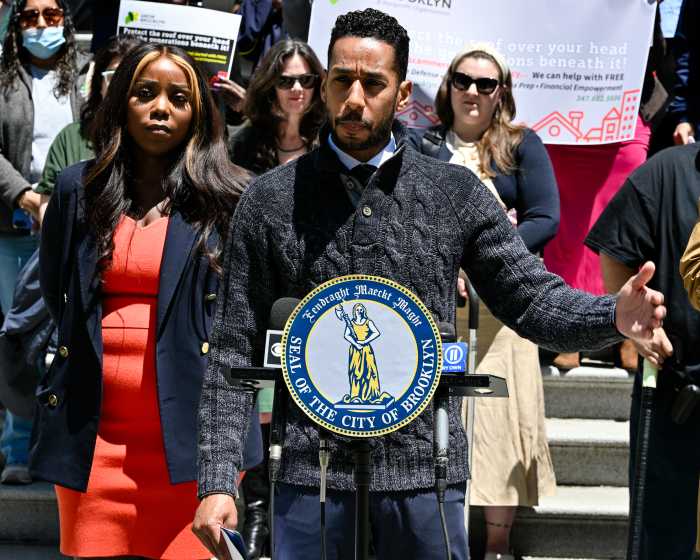
Deed theft is the illegal transfer of property ownership without a homeowner’s knowledge or consent. Scammers often forge a homeowner’s signature on a new deed and file it with the county clerk’s office or trick homeowners with fake refinancing offers, equity stripping, and foreclosure bailout loans.
Brooklyn Borough President Antonio Reynoso, who is spearheading the effort with support from local Council Members Chi Ossé, Farah Louis, and Sandy Nurse, said fighting deed theft is costly and time-consuming. A typical deed theft case can require upwards of 300 attorney hours and seven years to complete, he said.
Many deed theft victims, most of them seniors, don’t have the financial resources to hire a private law firm, Reynoso said, and Brooklyn’s free legal service providers are overwhelmed with deed theft cases and many lack grant funding to fight deed theft head-on. The $5 million investment from the Council would fund legal services for victims of deed theft and expand education and outreach programs to warn vulnerable New Yorkers about what deed theft scams can look like.
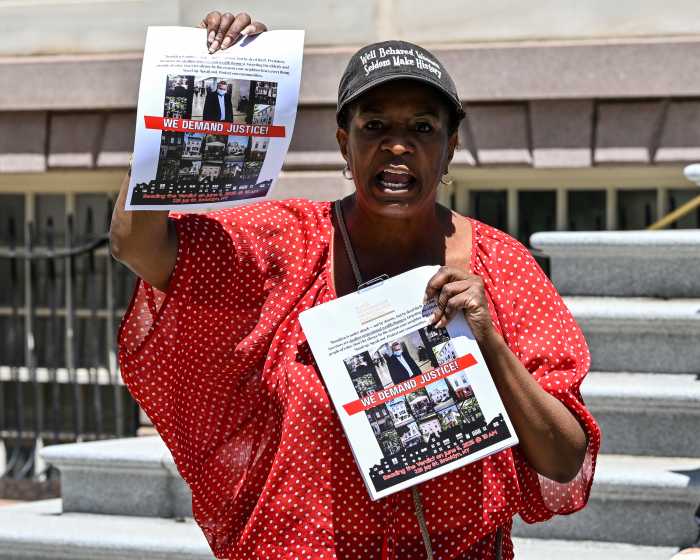
“Brooklyn will not tolerate scammers coming to our borough to prey on vulnerable Black and Brown homeowners and steal their homes from right under their nose,” Reynoso said. “This investment offers the City Council an opportunity to keep our communities whole and give Brooklynites a fighting chance to remain in the homes they’ve owned for generations.”
Ossé, the co-chair of Council’s Brooklyn delegation, represents Bed-Stuy and north Crown Heights. He said Bed-Stuy has experienced a significant displacement of Black residents over the last ten years — more than any other community in the city.
“One of the results and reasons for that is deed theft that is impacting the streets of Black Brooklyn,” said Ossé, who recalled that his sick grandmother was harassed daily by scammers, trying to push her to sell her home through third-party transfer and attempted deed theft. “Deed theft is one of the most cruel crimes committed in our city. It is abuse inflicted primarily on the seniors who built our communities.”
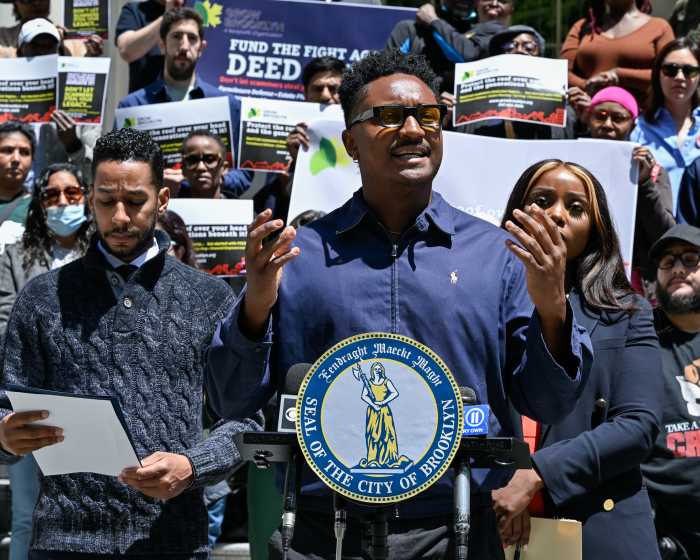
Louis said combating deed theft, which strips Black and Brown families of the homes and generational wealth they spent their lives building, was a racial, moral, and housing access issue.
“That’s why today we are calling for the administration to invest $5 million in the FY 26 budget to expand access to free legal services, support outreach, and help victims fight and reclaim their homes,” Louis said. “We cannot allow immoral and deceptive practices to continue.”
Nurse, whose district includes Bushwick, Brownsville, Cypress Hills, and East New York, announced she would introduce legislation, co-sponsored by Reynoso and Ossé, on May 28 requiring the Department of Consumer and Worker Protection to create a website that publicly lists all individuals convicted of committing larceny by deed theft.
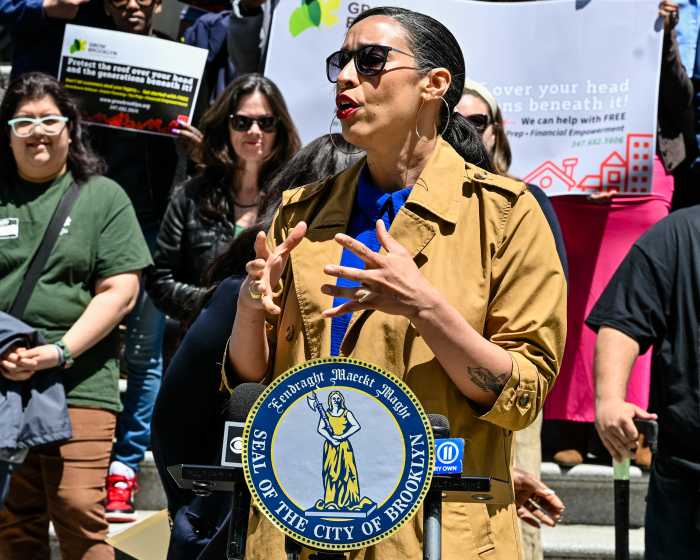
Nurse described deed theft criminals as “white collar thugs” who hide behind LLCs while destabilizing Black communities in Brooklyn.
“We need to name and shame these criminals, these white collar thugs, these parasites that are using tools and preying on our elders, and particularly our black older adults, because that’s who they’re targeting,“ Nurse said. “We will find you, we will name you, and we will shame you.”
In addition to investing in resources combating deed theft, state Assembly Member and candidate for Mayor Zohran Mamdani called for a one-year suspension of the statute of limitations for deed theft.
Under a new law passed in 2024, the statute of limitations to prosecute deed theft crimes prosecution must begin within five years of the theft or within two years after the rightful homeowner realizes their deed has been stolen, whichever occurs later. The law also established deed theft as a crime and expanded the Attorney General’s ability to prosecute deed theft — under previous law, deed theft itself was not a crime.
“We need to make sure that every elder has the tools they need to draw up their estate plans, and finally, to support measures at the state level to suspend the statute of limitations for one year to ensure that there can be justice for so many of those homeowners who have been tricked and deceived and lied out of that which they have spent their entire lives fighting for,“ Mamdani said.
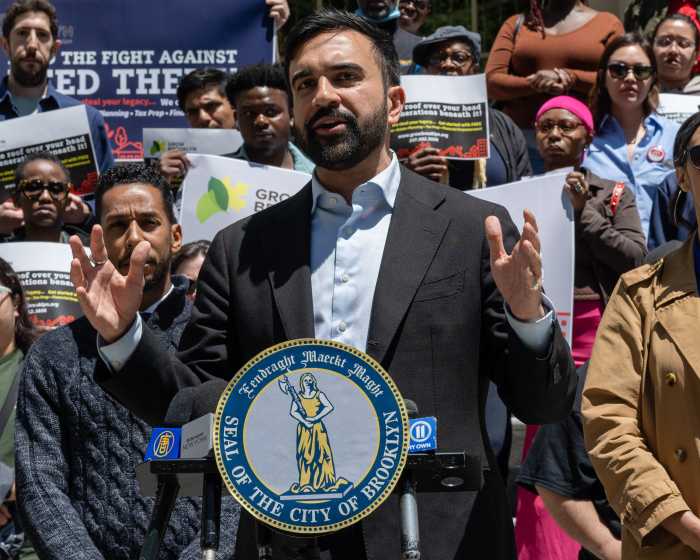
Sean Davis, senior staff attorney with Mobilization for Justice’s foreclosure prevention project, shared the story of a client trying to save their family home. After unsuccessful attempts to refinance through traditional mortgage lenders, his client became the victim of a”hard money loan” — a short-term loan with a high interest rate designed to fail.
Just as the scammer had planned, Davis’ client defaulted on the loan, and the title of their home automatically transferred to the perp. MFJ and their client sued the criminal in 2019, but the lawsuit is still ongoing despite a judge’s ruling that the loan was illegal.
“Even with that finding, [our client] is still fighting, and that’s just one story of the hundreds or maybe 1000s that are happening in Kings County,“ said Davis, pointing out that victims of equity stripping and scams were desperate for help. “In addition to funding for free legal services to help victimized homeowners, New York should improve its outdated consumer protections, to ban unfair and abusive practices and empower homeowners to hold scammers accountable.”


